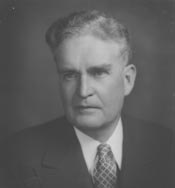A Quote by Alexander Hamilton
It is the advertiser who provides the paper for the subscriber. It is not to be disputed, that the publisher of a newspaper in this country, without a very exhaustive advertising support, would receive less reward for his labor than the humblest mechanic.
Related Quotes
Lying and cheating in advertising, in the long run, are commercial suicide. Dishonesty in advertising destroys not only confidence in advertising, but also in the medium which carries the dishonest advertisement. . . . No one can be ill in a community without endangering others; no advertiser can be dishonest without casting suspicion upon others.
An electronic paper has infinite space because you can bring forth as much content as a reader wants. And the resolution of ads is very high. And when you touch the ad you can interact with the advertiser and the paper will take you to the advertiser's Web site and you can get more information. So ideally there should be a better connection between the ads you're shown and what you're actually interested in.
The one-two punch of New York media calling up every agency and corporate advertiser, keeping lists of advertisers who stayed on - " i.e., with Bill O'Reilly " - and those who fled, worked. As the publisher of a center-right magazine, this is disturbing. It sets a very bad precedent about the power of advertiser pressure and sends a message as an organization that you can essentially be blackmailed into getting rid of - " no kidding!
He was a foe without hate; a friend without treachery; a soldier without cruelty; a victor without oppression, and a victim without murmuring. He was a public officer without vices; a private citizen without wrong; a neighbor without reproach; a Christian without hypocrisy, and a man without guile. He was a Caesar, without his ambition; Frederick, without his tyranny; Napoleon, without his selfishness, and Washington, without his reward.
Such exaggerations have been so common that the public takes them with a grain of salt and partly excuses them as being due to the advertiser's license of self-assertiveness. Nevertheless, the fact remains that superlative generalities are weak arguments and far less convincing than a statement of facts. Much advertising copy would be improved immensely by doing away with brag and substituting actual facts about the merits of the article.
The poor, stupid, free American citizen! Free to starve, free to tramp the highways of this great country, he enjoys universal suffrage, and by that right, he has forged chains around his limbs. The reward that he receives is stringent labor laws prohibiting the right of boycott, of picketing, of everything, except the right to be robbed of the fruits of his labor.

































